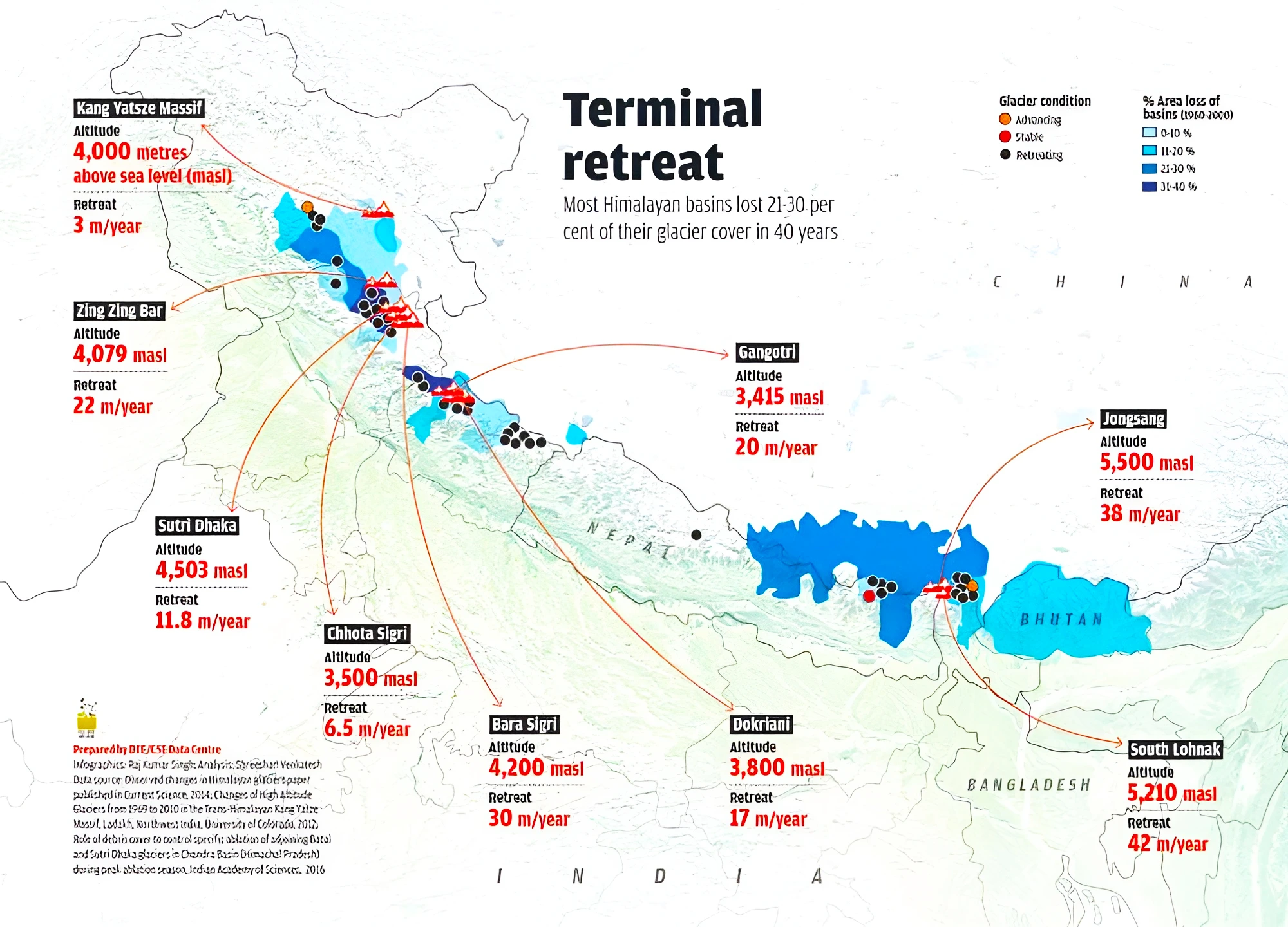Context: The government has rejected regional cooperation, a key recommendation of a parliamentary standing committee to share glacier data with China and neighbors to tackle the threat of melting Himalayan glaciers.
Why Centre Rejects to Share Glacier Data with China?

- The report titled ‘Glacier Management in the Country – Monitoring of Glaciers / Lakes Including Glacial Lake Outbursts Leading to Flash-Floods in the Himalayan Region‘ recommended regional cooperation.
- Basis of the suggestion: It will allow seamless sharing of data on glacier movement, behavior, and hydrology with India’s neighbors.
- India has a treaty for sharing of hydrological information with neighbors, but there was no specific treaty for sharing glacier-related data.
- Government response: In light of the tense relationship with China, the government has denied a new engagement with China on glacier data.
- The Indo-China border standoff that began three years ago, is believed to be the reason for the denial.
Data Sharing Mechanism related to Water Resources with China
- Present Data Sharing with China: India already has a mechanism to resolve the issue of trans-border rivers and any newer mechanisms were not recommended by the government.
- Present Mechanism:
- Expert-level mechanism to discuss interaction and cooperation on the provision of flood season hydrological data. Umbrella Memorandum of Understanding (MoU): At present, there is no activity being undertaken under this.
- Past Mechanisms:
- MoU upon provision of Hydrological Information of the River Brahmaputra: Expired in June 2023.
- MoU upon provision of Hydrological Information of the River Satluj: Expired in 2020
- Mechanism for Glacier Related Data Sharing: Despite a number of government agencies working in the Himalayas, there is no data or mechanism available regarding the glacier loss.
- There are concerns about the impact of China’s mega hydropower projects impacting India’s glacial and riverine systems, and comprehensive data sharing is needed.
To Read More: Glacial Lake Outburst Flood (GLOF) in Sikkim
Source: Economic Times
![]() 19 Dec 2023
19 Dec 2023
